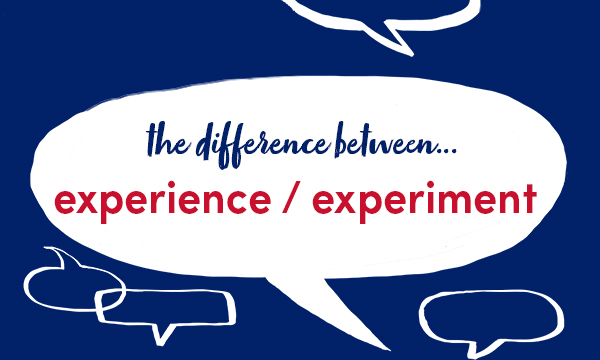This week we are looking at two words which are sometimes confused by learners of English: experience and experiment
.
experience

An experience is something that happens to you or something that you do.
Moving house can be a stressful experience.
If you have experience of something, you have seen it, done it, or felt it.
Do you have any teaching experience?
I’ve had no experience of running a business.
You say that someone has an experience.
I had a strange experience last night.
Be careful! Don’t say that someone ‘makes an experience.’
experiment

Use experiment to refer to a scientific test that is carried out in order to discover or prove something.
Laboratory experiments show that Vitamin D may slow cancer growth.
Try it out in an experiment.
You usually say that someone does, conducts, or carries out an experiment.
We decided to do an experiment.
Several experiments were conducted at the University of Zurich.
Be careful! Don’t say that someone ‘makes an experiment.’
Find out more in our English Usage article.
This blogpost is based on Collins COBUILD English Usage, written for learners of English. For more examples of English usage points, please visit: https://grammar.collinsdictionary.com/english-usage.
All opinions expressed on this blog are those of the individual writers, and do not necessarily reflect the opinions or policies of Collins, or its parent company, HarperCollins.




collins_dictionary_official
The home of living language. #wotd #wordlovers #collinsdictionary
Read our word of the week definitions and blog posts: